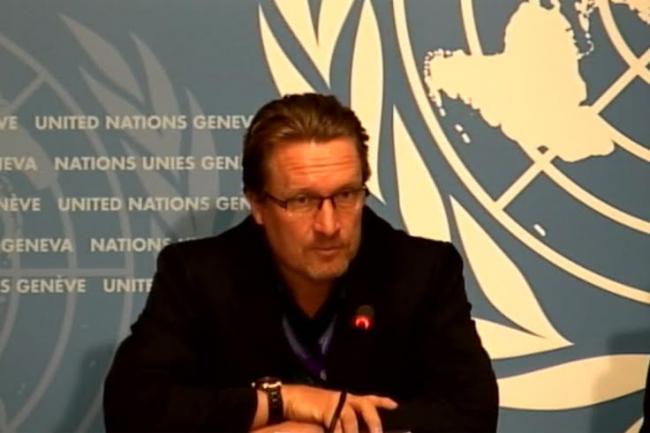20 Jun 2015, 04:15 pm Print

WHO spokesperson Christian Lindmeier told reporters on Friday at the UN press briefing in Geneva that on 15 June, Omani man presented himself to physicians, who detected his symptoms and isolated him in hospital and ran tests.
Three of his family members had also been isolated, according to Lindmeier. In addition, 59 people he had been in contact with – including healthcare staff – were being followed up on and had been quarantined for 14 days.
The spokesperson said the vigilance shown by the Thai authorities was exactly what it would expect in the current situation, and as the risk of individual travellers becoming infected and bringing the coronavirus back to their country could not be avoided, individuals had to stay vigilant.
Earlier this week, WHO declared that the Middle East Respiratory Syndrome, or MERS, outbreak that had spread from the Middle East to the Republic of Korea did not constitute a ‘public health emergency of international concern’ but was nonetheless a “wake-up call” for all countries to be prepared for the unanticipated spread of serious infectious diseases.
Regarding the latest case, Dr. Poonam Khetrapal Singh, WHO’s Regional Director for South-East Asia, said he had written to the Health Ministers of the 11 countries in the region to review and strengthen preparedness against MERS in view of the recent spread of the disease.
“Strong health systems using strict infection control measures would be the key to prevent the spread of the virus and protect health-care workers and others,” Dr. Khetrapal said.
Middle East respiratory syndrome coronavirus (MERS-CoV) is caused by a virus. Typical symptoms include fever, cough and shortness of breath. Pneumonia is common, but not always present. Gastrointestinal symptoms, including diarrhoea, have also been reported.
The disease was first identified in Saudi Arabia in 2012, from where the majority of cases have been reported since then, according to WHO. Since then 1,333 cases have been reported from 26 countries.
In response to a question about new cases of MERS in the Republic of Korea, the WHO spokesperson in Geneva said there had been one new infection case and one new death, bringing the total numbers for Republic of Korea to 24 deaths of 166 cases.
Photo: UN Webcast video capture
- Alarming projection: Global breast cancer cases could cross 3.5 million by 2050, shows study
- Exam stress to emotional distress: Study reveals the dark side of academic pressure
- Vegetarian diet linked to lower risk of five major cancers, study finds
- Ukraine’s health system under fire: Attacks spike 20% in 2025, WHO warns
- A dog’s loving lick turned deadly — She woke up without her limbs





-1763561110.jpg)
